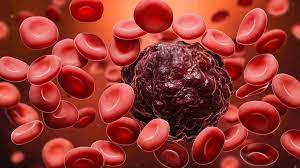
Common blood disorders encompass a wide range of conditions, including anemia and blood cancers, which significantly affect people's health and well-being. Anemia, a common blood disorder, occurs when the body lacks healthy red blood cells or hemoglobin, resulting in decreased oxygen-carrying capacity.

Various factors such as iron deficiency, vitamin B12 or folic acid deficiency or chronic diseases can be responsible for this. Treatment for anemia depends on the cause and may include dietary supplements, medication, or root canals. Blood cancers, on the other hand, are a group of cancers that affect the blood, bone marrow, and lymphatic system.
These disorders result from the uncontrolled growth of abnormal blood cells, which affects the body's ability to function optimally. Treatment options for blood cancer depend on factors such as the type and stage of the cancer, the general health of the patient, and other individual considerations.
Treatment for blood cancers can include chemotherapy, radiation therapy, immunotherapy, targeted therapy, and stem cell transplantation. Many blood cancer patients undergo a combination of these treatments for optimal results. Advances in medical research and personalized treatment options have significantly improved the prognosis and quality of life of people with blood disorders.




 click and follow Indiaherald WhatsApp channel
click and follow Indiaherald WhatsApp channel